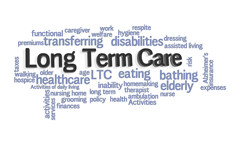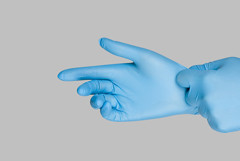
5 timeless habits for better health

What are the symptoms of prostate cancer?

Is your breakfast cereal healthy?

When pain signals an emergency: Symptoms you should never ignore

Does exercise give you energy?

Acupuncture for pain relief: How it works and what to expect

How to avoid jet lag: Tips for staying alert when you travel

Biofeedback therapy: How it works and how it can help relieve pain

Best vitamins and minerals for energy

Should you take probiotics with antibiotics?
Harvard Health Blog
Read posts from experts at Harvard Health Publishing covering a variety of health topics and perspectives on medical news.
Articles
Gov. Christie’s weight-loss surgery: a good idea for health
New Jersey Governor Chris Christie’s revelation yesterday that he had secretly undergone weight-loss surgery back in February shouldn’t come as a big surprise. He has been publicly (and privately) struggling with his weight for years and fits the profile of a good candidate for this kind of operation. In general, weight-loss surgery is appropriate for people with a body mass index (BMI) of 40 or higher, as well as for those with a BMI of 35 to 39.9 and a severe, treatment-resistant medical condition such as diabetes, heart disease, and sleep apnea, who had tried to lose weight other ways. Christie had a BMI of at least 41. He also acknowledged trying to lose weight many times, using different weight loss programs. He underwent laparoscopic gastric banding, also known as lap banding. There are also two other types of weight-loss surgery, gastric bypass and the gastric sleeve procedure.
Exercise is good, not bad, for arthritis
When pain strikes, it’s human nature to avoid doing things that aggravate it. That’s certainly the case for people with arthritis, many of whom tend to avoid exercise when a hip, knee, ankle or other joint hurts. Although that strategy seems to make sense, it may harm more than help. Taking a walk on most days of the week can actually ease arthritis pain and improve other symptoms. It’s also good for the heart, brain, and every other part of the body. Yet a new survey from the Centers for Disease Control and Prevention shows that more than half of people with arthritis don’t walk at all for exercise, and only 23% meet the current recommendation for activity—walking for at least 150 minutes a week. Walking is good exercise for people with arthritis, but it isn’t the only one. A review of the benefits of exercise for people with osteoarthritis (the most common form of arthritis) found that strength training, water-based exercise, and balance therapy were the most helpful for reducing pain and improving function.
Few plan for long-term care though most will need it
Two of every three Americans who reach age 65 will at some point need long-term care for up to three years. Yet the majority of those age 40 and older have done “little or no planning” for how they might pay for long-term care when they get older. That’s a key finding from a new survey of 1,019 Americans over age 40 on the topic of long-term care. The survey was done by the Associated Press and NORC at the University of Chicago. Most people underestimate the cost of nursing home care (it averages $6,700 a month) and overestimate what Medicare will cover. And few people are setting aside money for long-term care even as most worry about key issues of aging such as memory loss or being a burden to family members. Without a crystal ball, it’s tricky to plan for the future. It’s easy to convince yourself that you or a partner won’t need long-term care. But the statistics suggest you should start planning now, even if your plan isn’t perfect.
Tai chi improves balance and motor control in Parkinson’s disease
It isn’t every day that an effective new treatment for some Parkinson’s disease symptoms comes along. Especially one that is safe, causes no adverse side effects, and may also benefit the rest of the body and the mind. That’s why a report in the New England Journal of Medicine showing that tai chi may improve balance and prevent falls among people with Parkinson’s disease is so exciting. This and earlier studies are significant because they suggest that tai chi can be used as an add-on to current physical therapies and medications to ease some of the key problems faced by people with Parkinson’s disease. Since the appearance of the New England Journal of Medicine study, tai chi classes specifically for Parkinson’s disease patients have sprung up across the country, and the benefits of tai chi for Parkinson’s disease have been endorsed by the National Parkinson’s Foundation.
Extra protein is a decent dietary choice, but don’t overdo it
Adding more protein to the diet and cutting back on carbohydrates, especially highly processed carbs, is an eating strategy adopted by a growing number of people. A new study in the Journal of Nutrition Education and Behavior found that 43% of women surveyed are using the practice of eating more protein to prevent weight gain, and this strategy was associated with weight loss. It isn’t necessary to eliminate all carbohydrates and focus only on protein. Such an eating strategy may have a short-term payoff for weight loss, but it may also come with some long-term risks. Tips for getting a healthful mix of nutrients include adding the healthful trio of fat, fiber, and protein to each meal; avoiding highly processed foods; and choosing the most healthful sources of protein, such as fish, poultry, eggs, beans, legumes, nuts, tofu, and low-fat or non-fat dairy products.
Benefit to improving diet and exercise at the same time
ARCHIVED CONTENT: As a service to our readers, Harvard Health Publishing provides access to our library of archived content. Please note the date each article was posted or last reviewed. No content on this site, regardless of date, should ever be used as a substitute for direct medical advice from your doctor or other qualified clinician. […]
Power training provides special benefits for muscles and function
Strength training is a popular term for exercises that build muscle by harnessing resistance against an opposing force. The resistance can come from your body, or from free weights, elasticized bands, or specialized machines. It makes muscles stronger. Another type of training, known as power training, is proving to be just as important as strength training in maintaining or restoring function. As the name suggests, power training is aimed at increasing power, which is the product of both strength and speed. Optimal power reflects how quickly you can exert force to produce the desired movement. Here’s an example: Faced with a four-lane intersection, you may have enough strength to walk across the street. But it’s power, not just strength, that can get you across all four lanes of traffic before the light changes. Likewise, power can prevent falls by helping you react swiftly if you start to trip or lose your balance. Some power moves are strength training exercises done at a faster speed. Others rely on the use of a weighted vest, which is worn while performing certain exercises that are typically aimed at improving functions such as bending, reaching, lifting, and rising from a seated position.
Healing from emotional trauma after the Marathon bombing
The bombs that exploded on Monday near the finish line of the Boston Marathon killed three people, physically injured nearly 200 others, and traumatized thousands more. Recovery and healing are beginning for the families of those who died, for the injured and their families, and for others touched by this tragedy. For some, healing will be swift. For others it will be measured in small steps over months, and possibly years. The Marathon explosions will leave a legacy of emotional scars along with the physical ones, even among those who weren’t anywhere near the blasts. Some people who were at the scene of the explosions will undoubtedly develop post-traumatic stress disorder (PTSD). But PTSD is not the only response to frightening events. In fact, most people exposed to a trauma do not develop this condition. They may develop an anxiety disorder, for example, or become depressed. Most people do have some emotional response, but the majority develop no illness at all.
New study links L-carnitine in red meat to heart disease
Is red meat bad for your heart? A new study suggests it is, but not for the reasons you might expect—like the saturated fat or cholesterol in red meat. A team from a half dozen U.S. medical centers says the offending ingredient is L-carnitine, an amino acid that is abundant in red meat. Their work shows that eating red meat delivers L-carnitine to bacteria that live in the human gut. These bacteria digest L-carnitine and turn it into a compound called trimethylamine-N-oxide (TMAO), which has been shown to cause atherosclerosis, the disease process that leads to cholesterol-clogged arteries, in mice. There’s still a long way to go before we know the full story about L-carnitine and heart disease, but this work suggests that cutting back on L-carnitine (and avoiding L-carnitine supplements) may be good steps for heart health.
Getting more potassium and less salt may cut heart attack, stroke risk
Salt is a cheap, easy way to turn on taste buds. That’s one reason why it’s in so many of the foods we eat. It’s so commonly used that most Americans consume more than double the recommended daily limit for it. Three new studies in BMJ (formerly the British Medical Journal) once again confirm the relationship between salt intake and health problems. They show that reducing salt intake can help lower blood pressure and lower the odds of having a heart attack or stroke or developing heart failure. They also show that consuming more potassium is also linked to lower blood pressure and lower risk of stroke. Current dietary guidelines recommend that Americans get no more than 1 teaspoon of salt a day. That’s the equivalent of 2,300 milligrams (mg) of sodium a day. Most Americans get much more than that. It’s possible to cut back by avoiding processed and packaged foods, using herbs and spices to season food instead of salt, and other strategies. It’s best to get potassium from food, especially fruits and vegetables. Green leafy vegetables, beans, and bananas have a lot of potassium.
Angina pain is similar in men and women, though descriptions may differ
Chest pain brought on by exercise or stress, a condition known as angina, holds back millions of Americans from living life to the fullest. There’s long been a perception that angina symptoms in women are different than they are in men. Doctors often use the term “typical angina” to describe the angina symptoms that men relate. Symptoms more commonly described by women have been dubbed “atypical angina”—suggesting that women are somehow experiencing an unusual manifestation of heart trouble. A new Harvard study shows that women and men probably experience the same symptoms, but describe them differently. By any name or description, chest discomfort is crucial for women—and their doctors—to pay attention to. And that means acknowledging the possibility of angina no matter how a women describes suspicious chest-related symptoms.
Which is better for keeping your mind fit: physical or mental activity?
Physical and mental activities are both important for protecting your thinking skills and warding off dementia. But does one trump the other? A study published yesterday in JAMA Internal Medicine tried to tease out if one was better than the other for brain health. Researchers recruited 126 older adults who felt that their memory or thinking skills had recently gotten worse, and divided them into four groups. All were asked to do an hour of mental activity three times a week and an hour of physical activity three times a week. What differed were the intensities of these activities. After 12 weeks, scores on thinking tests improved across the board. The big surprise was that there weren’t any real differences in improvement between the groups. The researchers concluded that the amount of activity is more important for stimulating the brain than the type of activity, because all of the participants both exercised and engaged in mental activities each week.
Acupuncture is worth a try for chronic pain
Chronic pain in the muscles and joints can make life miserable. Standard treatments like ice and heat, anti-inflammatory medications, physical therapy, and appropriate exercises can often ease the pain. But when they don’t, acupuncture is an option with a good track record that’s worth considering. Research from an international team of experts adds to the evidence that it does provide real relief from common forms of pain. The team pooled the results of 29 studies involving nearly 18,000 participants. Overall, acupuncture relieved pain by about 50%. The study isn’t the last word on the issue, but it is one of the best quality studies to date and has made an impression. For new pain, an acupuncturist should not always be the first stop. It’s important to get a clear diagnosis of what is causing the pain to rule out serious medical conditions that should be treated right away—and then seek out acupuncture if appropriate.
Distracted eating may add to weight gain
If you are worried about your weight, paying more attention to what you eat, not less, could help keep you from overeating. Multitasking—like eating while watching television or working—and distracted or hurried eating can prompt you to eat more. Slowing down and savoring your food can help you control your intake. That’s the bottom line from a report published in the April issue of the American Journal of Clinical Nutrition. It offers two key conclusions: 1) Being distracted or not paying attention to a meal tended to make people eat more at that meal. 2) Paying attention to a meal was linked to eating less later on. Mindful eating is a good solution. It can reduce daily calorie intake, help make healthier food choices, and add to the enjoyment of eating.
Chelation therapy offers small, if any, benefit for heart disease
Chelation therapy removes metals that have built up in the body. It is an FDA-approved way to treat mercury, lead, and other types of heavy-metal poisoning, as well as for iron overload (hemochromatosis) and some types of anemia. It has also been touted as an alternative therapy that can cure heart disease. Results from the 10-year, $31 million Trial to Assess Chelation Therapy (TACT) show that it slightly reduced the risk of heart problems in heart attack survivors. Proponents of chelation therapy will say this proves what they’ve been preaching. But the editors of JAMA, which published the trial results say that the findings “should serve to dissuade responsible practitioners from providing or recommending chelation therapy for patients with coronary disease and should discourage patients with previous MI [heart attack] from seeking this therapy with the hope of preventing subsequent cardiovascular events.”
Many miss prediabetes wake-up call
Type 2 diabetes doesn’t usually appear all of a sudden. Many people have a long, slow, invisible lead-in to it called prediabetes. During this period, blood sugar levels are higher than normal. However, they’re not high enough to cause symptoms or to be classified as diabetes. It’s still possible at this stage to prevent the slide into full-blown diabetes. Think of prediabetes as a wake-up call. Unfortunately, few people ever hear the alarm. A new report from the Centers for Disease Control and Prevention shows that among Americans age 20 and older, only 10% of those with prediabetes know they have it. Given that as many as 73 million Americans have prediabetes, that’s a lot of missed opportunities to prevent the ravages of diabetes. One reason many people don’t know that they may be headed toward diabetes is they’ve never had their blood sugar tested. This simple test isn’t part of routine preventive care, but perhaps it should be.
Survival skills for all-you-can-eat buffets
All-you-can-eat buffets are a boon for hungry, thrift diners and a nightmare for dieters or those trying to maintain a healthy weight. If you are in the latter camp, here are two tips from Brian Wansink, the master of mindful eating: 1) Take a walk around the entire buffet to scope out your options before serving yourself. 2) Put your food on a small plate instead of a big one. Those come from observations of more than 300 men and women dining in two dozen all-you-can-eat Chinese restaurants. Understanding the many factors that influence what and how you eat can help you take more control of your eating habits. Who you eat with, how you are feeling, and activities like parties or shopping can influence when and how much you eat.
Physical therapy works as well as surgery for some with torn knee cartilage
Tiny shock absorbers in the knee (each one is called a meniscus) provide a key cushion between the thighbone and the shinbone. They are prone to tearing, and sometimes just wear out. A torn meniscus can cause pain or other symptoms, like a knee that locks. But sometimes they don’t cause any symptoms. In a youngish person, when a knee-wrenching activity like skiing, ultimate Frisbee, or slipping on the ice tears a meniscus, the damage is often repaired surgically. But a torn meniscus is often seen in the 9 million Americans with knee osteoarthritis, and for them the best course of action hasn’t been crystal clear. Results of the Meniscal Tear in Osteoarthritis Research (MeTeOR) trial published yesterday in the New England Journal of Medicine indicate that physical therapy may be just as good as surgery. Both therapies led to similar improvements in knee function and pain at six and 12 months.
New concussion guidelines say “When in doubt, sit it out”
New guidelines for recognizing and managing sports-related concussions could help protect the brains of millions of athletes at all levels of play, from professional football to youth soccer. The guidelines, released today by the American Academy of Neurology (AAN), replace a now-outdated set published in 1997. The guidelines step away from trying to “grade” concussions or diagnose them on the field or sidelines. Instead, they focus on immediately removing from play athletes who are suspected of having a concussion until they can be evaluated. “When in doubt, sit it out.” The AAN estimates that concussions cause between 1.6 million and 3.8 million mild brain injuries each year. Many athletes don’t get medical attention for these injuries, often because they or their coaches don’t recognize the warning signs or take them seriously. The new guidelines should help better identify athletes who have suffered concussions and improve how concussions are managed and treated.
Distracted driving: We’re Number 1
Americans drive while talking on a cellphone or texting more than their counterparts in seven European countries. A report published yesterday showed that 69% of American drivers surveyed said they had talked on a cellphone while driving at least once in the previous month (31% said they did it “regularly or fairly often”), and 31% said they had read or sent text messages while driving. The least distracted drivers were in the United Kingdom. Not surprisingly, younger drivers were more likely to have reported talking on a cellphone or texting while driving. The statistics on distracted driving are chilling: In 2011 (the last year with complete statistics), 3,331 people were killed in motor vehicle crashes involving a distracted driver, and nearly 400,000 were injured. The National Highway Traffic Safety Administration estimates that distracted driving accounts for about one in five crashes in which someone was injured.
Can’t touch this: “Latex-free” labels are misleading
If you or a loved one has a latex allergy or sensitivity, think twice before reaching for a product that says “latex free” or “does not contain latex.” That’s the latest advice from the FDA, which says no existing tests can show that a product is completely free from latex. Labeling that suggests a product doesn’t contain the substance could cause trouble for individuals with a latex allergy or sensitivity. Natural latex is used to make a host of stretchy products, including adhesive bandages, condoms, gloves used in health care and dishwashing, balloons, rubber band, elastic used in waistbands and socks, baby bottle nipples, pillows, and more. This kind of latex contains proteins that set off some people’s immune systems, leading to an allergic reaction. The FDA’s warning highlights that products advertised as “latex-free” may not always live up to the claim. That’s because products that are made without latex can be contaminated with latex proteins during the manufacturing or packaging process.
Take a nap to adjust to Daylight Saving Time
It always takes me a few days to get used to Daylight Saving Time. While I love the extra hour of light at the end of the day, I’m not so wild about the extra hour of darkness in the morning or waking up an hour earlier than I need to. And I sure miss the hour of sleep I lost yesterday. That lost hour seems to be a big deal. A report in this month’s American Journal of Cardiology details the jump in heart attacks seen in a large Michigan hospital the first week after the start of Daylight Saving Time, and the small decline after it ends in the fall. A few years back, researchers showed a similar pattern in Sweden. The number of traffic accidents are similarly affected. In a Canadian study, there were more accidents on the Monday after the start of Daylight Saving Time than there were on the Monday the week before the change. If ever there was a perfect day for a nap, today would be it. A single nap won’t fully reset your body clock or make up for a lost hour of sleep, but it can help. It’s also a good way to stay sharp, especially in the afternoon.
Your well-being: more than just a state of mind
Americans are a diverse lot, so it’s no surprise they give different answers when asked about their well-being. But it seems that well-being differs from state to state, too. In the latest Gallup-Healthways Well-Being Index, which gauges the physical and emotional health of people in all 50 states, residents of Hawaii reported the best sense of overall well-being while West Virginia residents reported the worst. The index calculates overall well-being based on six quality of life categories, each of which is made up of several components. Poll respondents in Hawaii had the highest scores in the emotional health and work environment indexes, and were most likely to say they were thriving. People in West Virginia were most likely to say they were not thriving, and had the worst emotional health, the worst health habits, the most diagnoses of depression, and high rates of obesity. People in the other 50 states fell in between. It’s possible to change both emotional and physical well-being, and improve happiness.

5 timeless habits for better health

What are the symptoms of prostate cancer?

Is your breakfast cereal healthy?

When pain signals an emergency: Symptoms you should never ignore

Does exercise give you energy?

Acupuncture for pain relief: How it works and what to expect

How to avoid jet lag: Tips for staying alert when you travel

Biofeedback therapy: How it works and how it can help relieve pain

Best vitamins and minerals for energy

Should you take probiotics with antibiotics?
Free Healthbeat Signup
Get the latest in health news delivered to your inbox!
Sign Up

























